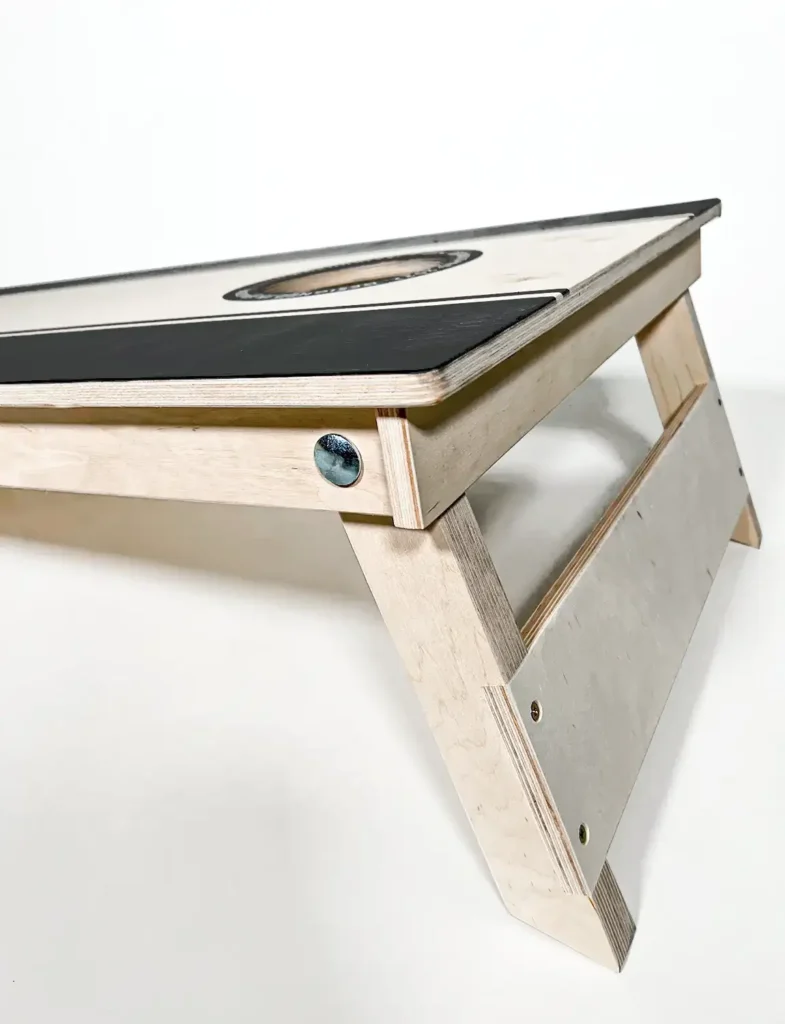Why play Cornhole? Americas most played sport 2025
-
Published by: Anton Gustafsson
- Last updated:

Cornhole has rapidly become a beloved pastime across the globe. From backyard barbecues to competitive leagues, this simple yet exciting game offers fun, camaraderie, and physical activity. Whether you’re new to the sport or a seasoned player, cornhole is the perfect game for all ages and skill levels. In this blog, we’ll explore why you should play cornhole, its numerous benefits, and how to get started.
Table of Contents
- What is Cornhole?
- Health Benefits of Playing Cornhole
- Social and Mental Benefits
- Cornhole as a Competitive Sport
- How to Get Started with Cornhole
- Cornhole Equipment Essentials
- Conclusion
What is Cornhole?
Cornhole is a lawn game that involves tossing small bags filled with corn or synthetic pellets onto a raised board with a hole at the far end. The goal is to get the bags through the hole for maximum points, with points also awarded for landing on the board.
Basic Rules of Cornhole:
- Teams: Cornhole is usually played by two players or two teams of two.
- Scoring: A bag in the hole is worth 3 points, and a bag on the board is worth 1 point.
- Win Condition: The first player or team to reach 21 points wins.
Cornhole is easy to learn, making it accessible for players of all skill levels, while also offering plenty of room for improving technique and strategy.
Health Benefits of Playing Cornhole
1. Physical Exercise
While cornhole might not look like a workout, it does offer several physical benefits:
- Improves hand-eye coordination: Tossing bags requires precision and control, helping to enhance coordination over time.
- Strengthens arm muscles: Repeatedly throwing bags works the muscles in your arms and shoulders, helping build strength.
- Encourages movement: Playing cornhole involves walking back and forth between boards, which contributes to light cardiovascular activity.
2. Low-Impact Sport
Cornhole is a low-impact sport, making it suitable for individuals of all ages. It’s gentle on the joints and muscles, unlike more strenuous sports, making it perfect for those with injuries or mobility issues.
3. Improves Balance and Flexibility
As you lean and toss bags, you engage your core muscles and work on your balance. Over time, this can lead to better posture and increased flexibility.
Social and Mental Benefits
1. Brings People Together
Cornhole is a social game, perfect for family gatherings, parties, and team-building events. It’s an activity that people of all ages and backgrounds can enjoy together, fostering communication, teamwork, and bonding.
2. Reduces Stress
The relaxed pace of the game and the focus on a simple task can be a great stress reliever. The repetitive nature of tossing the bags can help players clear their minds, making it a meditative activity in some ways.
3. Boosts Confidence and Mental Agility
Successfully landing bags on the board or in the hole provides a sense of achievement, boosting confidence. As players develop strategies and improve their throwing techniques, they sharpen their mental agility as well.
Cornhole as a Competitive Sport
Cornhole is not just a casual backyard game—it has grown into a competitive sport with professional leagues and tournaments worldwide. In fact, it’s officially recognized by the American Cornhole League (ACL), and ACL Pro players compete for cash prizes and titles in events broadcasted on major sports networks.
Why Should You Consider Competitive Cornhole?
- Skill Development: Competitive play allows you to refine your techniques and strategies, making the game more challenging and rewarding.
- Tournaments and Prizes: Many regions host local cornhole tournaments, offering opportunities to win prizes or even qualify for larger national and international competitions.
- A Community of Players: Joining a league introduces you to a supportive and enthusiastic community of fellow cornhole players.
How to Get Started with Cornhole
Step 1: Learn the Basics
Before diving into competitive play or hosting your own cornhole party, it’s essential to understand the basic rules and scoring. Luckily, these can be picked up quickly through casual play.
Step 2: Find or Build a Team
Cornhole can be enjoyed solo, but it’s even more fun with others. Invite friends, family, or neighbors for a friendly game, or look for local leagues or clubs in your area to meet new players.
Step 3: Practice, Practice, Practice
Like any sport, practice is key to improving your cornhole skills. Set aside time for casual games where you can focus on your throw technique, stance, and aim.
Cornhole Equipment Essentials
To start playing cornhole, you’ll need the following equipment:
|
Equipment |
Description |
|
Standard boards are 2 feet by 4 feet with a 6-inch hole centered 9 inches from the top. |
|
|
Bags are typically filled with corn kernels or plastic resin and weigh around 16 ounces. |
|
|
Space |
Cornhole can be played in backyards, parks, or any flat open space. The standard distance between boards is 27 feet. |
When shopping for cornhole equipment, you can opt for a wide variety of designs, ranging from plain wooden boards to custom-printed cornhole boards, ACL-regulation boards for competitive play. Similarly, cornhole bags come in different colors, patterns, and filling materials, each offering a slightly different feel and play experience. You can also buy professional cornhole bags stamped with ACL PRO license here.
Features to Look for in Cornhole Equipment:
- Durability: High-quality materials will ensure your boards and bags last for many games.
- Portability: Look for foldable or lightweight boards if you plan to transport them frequently.
- Custom Designs: Personalize your boards with custom designs that reflect your style or favorite sports team.
Conclusion
Cornhole is more than just a backyard game—it’s a fun, inclusive, and rewarding activity that offers both physical and mental benefits. Whether you’re looking to spend quality time with friends and family, relieve stress, or engage in light exercise, cornhole provides an easy and enjoyable solution.
Moreover, as a competitive sport, cornhole offers the opportunity to challenge yourself, develop new skills, and even participate in professional tournaments. The simplicity of the game combined with the endless opportunities for improvement makes cornhole an activity that players of all levels can enjoy for years to come.
Key Takeaways:
- Cornhole is easy to learn, making it accessible for people of all ages and skill levels.
- The game offers physical benefits such as improved hand-eye coordination, strength, and balance.
- Playing cornhole fosters social interaction, reduces stress, and enhances mental agility.
- Competitive cornhole opens up opportunities for tournaments, community involvement, and skill development.
So, what are you waiting for? Gather your friends, grab a set of cornhole boards and bags, and experience the joy of this timeless game!
Buy your cornhole game with us at Cornholestore!
Order our complete cornhole games with high-quality boards and bags in any color.
- Made in Europe's leading cornhole factory
- Trendy Scandinavian design
- Pay safely with Klarna

